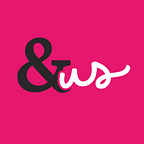What to do when the proverbial hits the fan
One of our recent engagements showed exactly what it’s like. It also perfectly showed why adaptability and a flexible mindset is so valuable.
The original challenge we were given was to create the positioning and visuals for the launch of a new, high-profile software product that had been in the works for over a year. A big deal for all.
“what the product actually was… well, that was suddenly TBC. “
However — and we’ve all been in this situation at some point or another — in a meeting early in the project, our project sponsor had the rug pulled from under them. They were told mid-meeting that earlier that day the company’s Execs had decided to kill half of the features they’d worked so hard on. We realised there and then that our original plan needed a radical and swift rethink — and our sponsorneeded a whole lot of help to still be able to deliver on time.
The timelines hadn’t changed — they still needed to showcase the product in just six weeks, but what the product actually was… well, that was suddenly TBC.
When we talk about how we support our clients, we don’t say we’ll make them future-proof. We say “future-ready” because you can’t know what the future holds. No one can. And you can’t be prepared for every eventually. That’s impossible, not to mention exhausting. But what we can do is keep a flexible mindset and have a toolkit at our disposal that allows us to flex and adapt to changing circumstances. And be ready to roll with the punches.
“And from the chaos, focus and a way forward emerged.”
In this case, our response was to scrap the creative workshops and the Miro storyboards, to throw out the no-code websites, and instead start by bringing together 20 members of the client’s team from across Europe, the US and Asia to collaborate over a simple, but mighty, Google Slides doc.
And from the chaos, focus and a way forward emerged.
Focussing everyone’s attention into this simple document meant that we could all work in the open, have round-the-clock dialogue through comments, everything was accessible, and everyone on the team had a voice.
We had one weekly meeting to review comments, make decisions and assign new actions until we had all 20 people completely aligned, all without a single long-winded debate (you know what I mean, the kind we’ve all sat through plenty).
And once we’d been able to bring the team together and get everyone aligned, we were able to kick our creativity back into gear — websites, videos, cheeky mockups, and stories were created, much to everyone’s delight, but more so for our sponsor, who we helped get from panic stations, to successfully delivering in time for launch, and then some.
“The primary commonality we bring to every piece of work is an open mind”
This is why we’re not about out-of-the-box solutions and we’re not wedded to any particular way of doing things.
The primary commonality we bring to every piece of work is an open mind, a bunch of questions, and a toolkit of skills and methods we can select from — both the shiny new ones and the basics — to solve problems. It’s what allows us to be flexible and adapt.
When the world shifts on its axis (sounds dramatic but that’s what it can feel like when your remit is turned upside down) — we’ve got this.
Originally published at https://andus.co on July 1, 2022.
